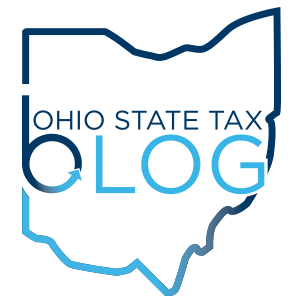Ohio Sales / Use Tax: Supreme Court says “keep the taps flowing sans tax,” limiting the scope of taxable building maintenance and janitorial services
Ohio Sales / Use Tax: Supreme Court says “keep the taps flowing sans tax,” limiting the scope of taxable building maintenance and janitorial services.
 In Great Lakes Bar Control v. Testa, 2018-Ohio-5207, the Ohio Supreme Court ruled that maintaining and cleaning draft beer lines falls outside the scope of a taxable “building maintenance and janitorial service.” The Court interpreted the meaning of “cleaning” in the context of a “janitorial service,” rather than applying a hyperliteral meaning. See R.C. 5739.01(II) (definition of “building maintenance and janitorial services”). Cleaning draft beer lines was not a taxable service since “no one would take the ordinary meaning of janitorial cleaning to include inspecting and flushing beer-tap lines.” Justice DeWine’s opinion affirmed the Board of Tax Appeals’ decision that cleaning draft beer lines is not a taxable building maintenance and janitorial service.
In Great Lakes Bar Control v. Testa, 2018-Ohio-5207, the Ohio Supreme Court ruled that maintaining and cleaning draft beer lines falls outside the scope of a taxable “building maintenance and janitorial service.” The Court interpreted the meaning of “cleaning” in the context of a “janitorial service,” rather than applying a hyperliteral meaning. See R.C. 5739.01(II) (definition of “building maintenance and janitorial services”). Cleaning draft beer lines was not a taxable service since “no one would take the ordinary meaning of janitorial cleaning to include inspecting and flushing beer-tap lines.” Justice DeWine’s opinion affirmed the Board of Tax Appeals’ decision that cleaning draft beer lines is not a taxable building maintenance and janitorial service.
The Court provided a non-exhaustive list of taxable janitorial services, such as washing floors, removing trash, vacuuming, and dusting. On the other hand, under an expansive interpretation of taxable janitorial services which the Court did not adopt, many non-janitorial services involving cleaning would become taxable, such as hard-drive cleaning, data cleansing, dry cleaning, and fish cleaning (e.g., scaling, gutting), as all these services involve cleaning tangible personal property located in a building. The Court stated that such an expansive interpretation ignores the janitorial context in which the term “cleaning” is used and is contrary to the law’s intent.
The Ohio Tax Commissioner has been broadly applying taxable “building maintenance and janitorial services” to many types of non-janitorial type services simply because they involve cleaning tangible personal property located in a building. The Ohio Supreme Court has now clarified that such application based upon the a hyperliteral meaning of the statutory definition is incorrect. The Court restricts the Tax Commissioner’s expansive application and requires undefined terms to be interpreted in the context of which they are used. This common sense approach will be extended to determining the scope of all taxable services in Ohio.
The taxpayer in Great Lakes Bar Control, Inc. v. Testa was represented by Buckingham attorneys Steven A. Dimengo, Matt Duncan, and Rich Fry. If you have questions about whether your cleaning services are subject to Ohio sales / use tax, please contact us.
